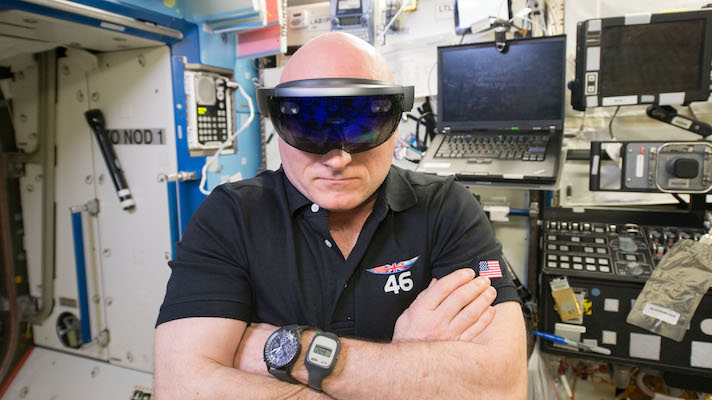Growing concern (and hope) about astronauts’ cognitive health during spaceflight

NASA astronaut Scott Kelly checks out the Microsoft HoloLens aboard a space station on February 20, 2016. (Photo by NASA via Getty Images)
About the concern: Brain MRI scans may help NASA plan safer missions to space (Health Imaging):
“Not a lot is known about cognitive impairment in humans during spaceflight,” Donna R. Roberts, MD, Medical University of South Carolina’s Department of Radiology, said in a statement … Roberts found “widespread” changes in brain structure that correlated with changes in cognitive performance and motor skills.
The long-term effects of these brain changes remains unknown, the authors wrote, but based on the findings, Roberts argued that NASA needs to change its medical protocol…
“These findings suggest that the brain changes seen with microgravity have measurable behavioral consequences,” Roberts and colleagues explained in the study. “While observed in a relatively small sample, with some variation based on astronaut demographics, these results may have major health significance that should be considered in spaceflight policy and planning.”
The full study was published online in the American Journal of Neuroradiology.
About the hope: How VR, AR could support astronauts’ mental health in space (MobiHealth News):
“Spending three years in an enclosed spacecraft with less than a handful of companions is a daunting task — not just physically but psychologically. However, that will be the reality for the crew going to Mars, a trip which is slated for some time in the next two decades … Augmented and virtual reality continuously resurfaced at the conference as a way to address astronauts’ mental wellbeing during the three-year journey to Mars…
“In addition to just mood, we need to think about what is the physiological impact. What does the radiation do to cognitive and behavioral function, what does it do to the immune function,” Fabre said (Editor’s Note: Kristin Fabre, senior innovation scientist at Translational Research Institute for Space Health). “So, when we are looking at a lot of these technologies to gauge cognitive or behavioral wellbeing, we would also like to have a physiological element to it as well. So, tying in monitoring or diagnosing to what is happening on the physiological level.”


